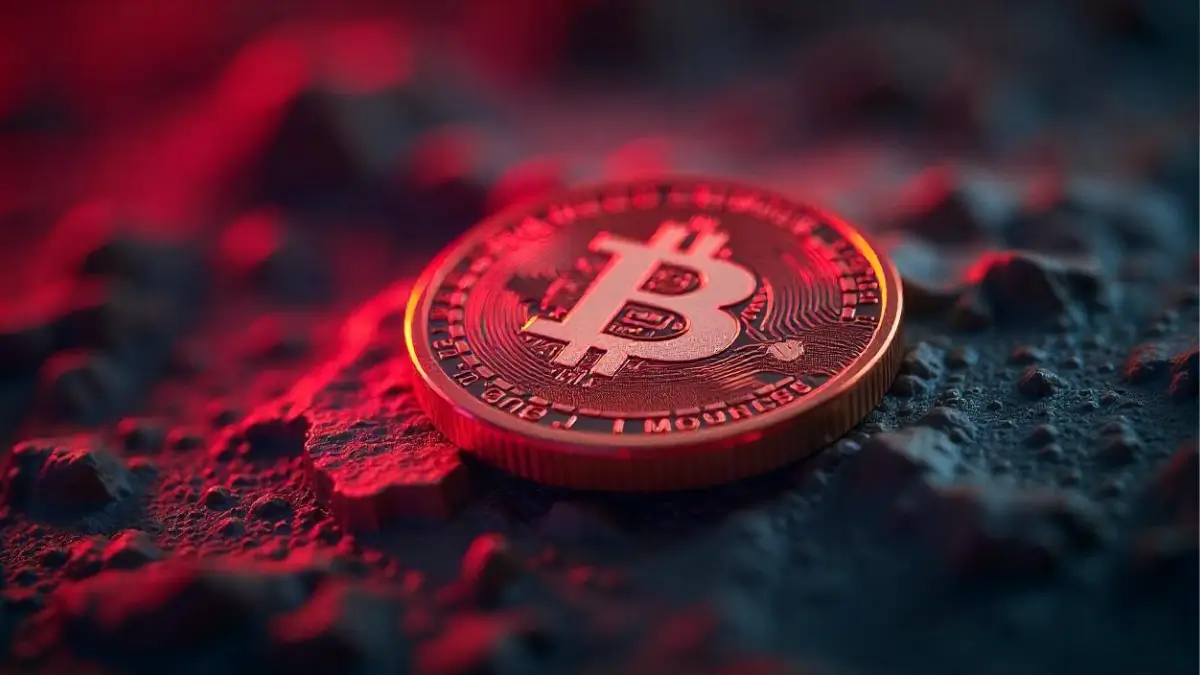Bitcoin (BTC) Defies Turmoil One Year After Halving
21.04.2025 13:00 2 min. read Alexander Stefanov
Bitcoin has marked one year since its latest halving event, and long-term holders have reason to celebrate.
Despite economic headwinds, including intensifying trade tensions between the U.S. and China, BTC has climbed more than 30% since April 2024, showing notable strength in uncertain times.
The halving, which cut block rewards from 6.25 to 3.125 BTC, reduced the rate at which new coins enter circulation—a key feature that reinforces Bitcoin’s scarcity. Traditionally, this event kicks off a multi-year price cycle. But this time, analysts believe that growing institutional involvement may be speeding things up.
According to Brickken’s Enmanuel Cardozo, the combination of seasoned market behavior and fresh liquidity from institutional players like Strategy and Tether could pull forward typical cycle milestones. “We may not need to wait until mid-2026 for a peak,” he suggested, adding that a Fed rate cut could inject even more momentum into the market.
Bitget COO Vugar Usi Zade echoed that sentiment, pointing to demand from ETFs and funds as a major factor in Bitcoin’s upward push. He noted that if BTC clears $90,000, a return to all-time highs could come swiftly, especially with fewer coins available post-halving.
Interestingly, data from trader Jelle shows Bitcoin’s current cycle may be unfolding faster than previous ones. BTC hit a record above $109,000 just 273 days after the 2024 halving—significantly quicker than the 546 and 518 days it took following the 2020 and 2016 halvings, respectively.
While the timeline may be shifting, one thing remains clear: Bitcoin’s resilience is once again proving itself in a volatile world.

-
1
Bitcoin ETFs See Tenth Straight Day of Inflows Amid Institutional Confidence
28.03.2025 19:00 2 min. read -
2
MARA Holdings Launches $2 Billion Stock Offering to Expand Bitcoin Stash
30.03.2025 16:06 1 min. read -
3
Michael Saylor’s Strategy Adds $2B in Bitcoin Despite Market Jitters
31.03.2025 21:00 1 min. read -
4
Bitcoin Mining Shifts to Renewables: Coal Usage Drops as Clean Energy Rises
03.04.2025 8:00 2 min. read -
5
Bitcoin at a Crossroads: Is the Bull Run Still Alive?
23.03.2025 9:00 2 min. read
Japan’s Metaplanet Ramps Up BTC Strategy, Targets 21,000 Coins
Tokyo-based Metaplanet has continued its aggressive Bitcoin strategy, now holding over $400 million in BTC following its latest acquisition.
Bitcoin Briefly Breaks $87K Barrier as Investors Return
Bitcoin has staged a strong comeback, briefly pushing beyond $87,000 for the first time in weeks as liquidity conditions improve globally and institutional players show signs of renewed appetite, even while concerns around U.S. trade tensions keep broader markets on edge.
Swiss Supermarket Rolls Out Lightning-Powered Bitcoin Payments
A supermarket in Zug, Switzerland, has begun accepting Bitcoin payments, adding to the country’s expanding list of crypto-friendly retailers.
Here’s How the Top Cryptocurrencies Are Performing as Market Volatility Fades
After a period of uncertainty and major price volatility for the stock and crypto markets amid Trump’s tariff turmoil, investors are seemingly more calm.
-
1
Bitcoin ETFs See Tenth Straight Day of Inflows Amid Institutional Confidence
28.03.2025 19:00 2 min. read -
2
MARA Holdings Launches $2 Billion Stock Offering to Expand Bitcoin Stash
30.03.2025 16:06 1 min. read -
3
Michael Saylor’s Strategy Adds $2B in Bitcoin Despite Market Jitters
31.03.2025 21:00 1 min. read -
4
Bitcoin Mining Shifts to Renewables: Coal Usage Drops as Clean Energy Rises
03.04.2025 8:00 2 min. read -
5
Bitcoin at a Crossroads: Is the Bull Run Still Alive?
23.03.2025 9:00 2 min. read

